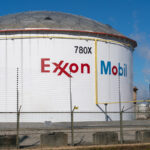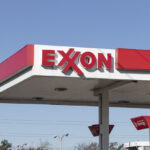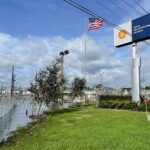Court decision would see Exxon pay Chad nearly seven-times the country’s GDP in penalties
A court decision handed down in the African country of Chad ordered international oil major ExxonMobil (ticker: XOM) to pay 44 trillion CFA francs ($75 billion) in connection to unpaid royalties. The company said it disagreed with the court decision, which would see the company pay four-times more than BP’s (ticker: BP) Deepwater Horizon settlement. The immense size of the fine against XOM represents almost 20% of XOM’s enterprise value.
The decision, if upheld, would see the country paid nearly seven-times its GDP, which the World Bank estimates at $13 billion.
The High Court in the capital, N’Djamena, announced October 5 in response to a complaint from the Finance Ministry that a consortium led by Exxon had not met its tax obligations. The court demanded the company pay $819 million in overdue royalties. The court did not explain why the penalties amounted to more than 90-times that amount, reports Reuters.
Exxon’s partners include Malaysian state oil company Petronas, Chad’s national hydrocarbon company, La Société des Hydrocarbures du Tchad (SHT), and Esso Exploration and Production Chad Inc. Chevron (ticker: CVX) was originally a part of the consortium as well, but sold its 25% interest to SHT in 2014.
The court document also stated that the companies were required to pay roughly $670 million pending any eventual appeal or redress they might choose to pursue.
“We disagree with the Chadian court’s ruling and are evaluating next steps,” Exxon media advisor Todd Spitler said in an email. “This dispute relates to disagreement over commitments made by the government to the consortium, not the government’s ability to impose taxes.”
The finance ministry is seeking a 2% royalty fee from the consortium, a rate the defendants said is higher than the agreed level.
“It is vital for all parties to honor the terms of a contract and abide by applicable law in order to achieve the desired long-term benefits envisioned when projects begin,” said Spitler.
Chad’s tense history with oil companies
 The extraordinary number Chad has ordered Exxon to pay is not the first instance of tense relations between the African country and international oil companies. In 2006, President Idriss Deby gave Chevron and Petronas 24-hours to leave the country, accusing them of not having paid taxes. Petronas denied the allegations and the case was later settled.
The extraordinary number Chad has ordered Exxon to pay is not the first instance of tense relations between the African country and international oil companies. In 2006, President Idriss Deby gave Chevron and Petronas 24-hours to leave the country, accusing them of not having paid taxes. Petronas denied the allegations and the case was later settled.
“Nobody is going to cooperate outside of Chad in enforcing this judgment,” said Jeffery Atik, who teaches international law at Loyola Law School. “This leaves Exxon exposed to possibly losing everything it has inside Chad but that’s such an extraordinary number, I can’t imagine the assets they have there are worth that much.”
“It’s not a realistic thing and it will never be collected,” Robert Amsterdam, a lawyer at Amsterdam & Partners LLP who has represented international corporations and sovereign governments, told Bloomberg. “This is much more about signaling that a renegotiation is in order than something that should trouble shareholders in any way.”
Like many other oil-dependent economies, Chad is struggling with low commodity prices, but the country is also dealing with violence from the Nigerian Islamist militant group Boko Haram, which has hindered trade with Nigerian and Cameroon. The combined effect of the two has prompted budget cuts, which in turn ignited several strikes and student protests this year. The IMF is forecasting the country’s economy will contract by 1.1% this year.
Chad became an oil producer in 2003 and producers around 120 MBOPD that it exports via pipeline through Cameroon. The EIA estimates that the country contains 393 billion barrels of risked in-place shale oil, with 16.2 billion barrels of technically recoverable oil.
The supermajors, considering the sheer size of the companies’ operations, revenues and global reserves, offer up a shiny target for countries aiming to squeeze additional income from an existing business partnership. In Forbes’ 2016 list of the world’s largest public oil and gas companies, Exxon Mobil is ranked No. 3, based on 2015 production, behind Russia’s two giants—Gazprom (ticker: GAZP, com) and Rosneft (ticker: ROSN, com). As far as enterprise value, Exxon Mobil comes in second to China’s CNOOC (ticker: CEO; com) in the Forbes report, released earlier this year.







